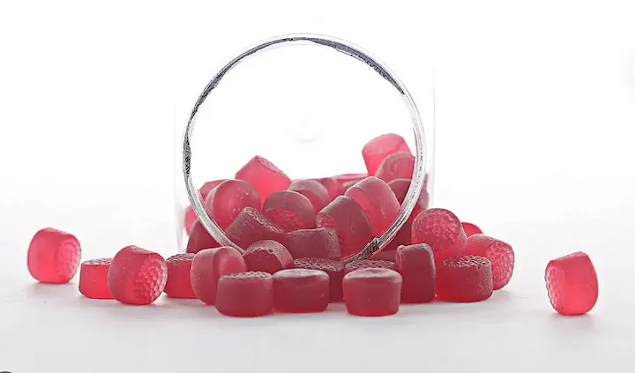Melatonin Gummies
Melatonin Gummies are popular among children, but adults may find them useful as a jet lag remedy or to promote sleep when traveling overseas. However, specialists believe that these dietary supplements should only be used as a short-term remedy to sleep issues.
Before using any dietary supplement, always read the label thoroughly and consult your healthcare provider.
Ingredients
Melatonin Gummies are chewable sleep aids that include natural strawberry-flavored melatonin to restore optimum sleeping patterns and address jet lag problems. Furthermore, these gummies may contain extra substances that help improve deep slumber.
The Centers for Disease Control and Prevention (CDC) reported in 2022 that an alarming increase in calls to US poison control centers about children accidentally taking melatonin supplements had increased by 530% between 2012 and 2021, prompting Cohen to investigate all available supplements, with a focus on those likely to be consumed by young children, particularly gummies.
He used the National Institutes of Health Dietary Supplement Label Database to find melatonin-containing gummies for sale in the United States, then purchased and inspected each one. Only one of the 25 purchased included no melatonin at all, while another contained 31.3 mg instead of the 13.1 reported on its label; the remaining 24 contained real quantities ranging from 74% to 347% of what was stated on their labels.
Dosage
Melatonin is a natural sleep aid that can help people fall asleep faster. It is also commonly given to treat delayed sleep-wake phase disorder or jet lag, and it may lessen insomnia symptoms in older persons while improving sleep quality.
Melatonin is classed as a dietary supplement, which means it was not subjected to FDA testing before being sold. A recent investigation showed that many melatonin-labeled goods do not contain what is claimed on their labeling.
Always read and follow the directions on the label and the instructions for usage for proper dosage. If you have a significant health problem, see your doctor before taking melatonin; they may recommend a higher or lower amount based on your specific needs and health situation. Because consuming too much melatonin might produce side effects, please keep in mind that the FDA has not cleared long-term use, so only use for short periods of time as this prescription may interact with certain medications.
Sleep experts are concerned about overdosing and misunderstanding caused by chewable supplements, which are becoming increasingly popular as an alternative to tablets. Furthermore, their control can vary, resulting in the inclusion of components such as sugar, synthetic dyes, and unnecessary chemicals.
Consult your doctor before using Melatonin if you have a preexisting medical condition, such as high blood pressure or a seizure disorder. Melatonin may interact with blood thinners, antidepressants, and anticonvulsants, as well as insulin and some blood pressure medications.
Melatonin should never be used with caffeine-containing items like coffee, tea, or energy drinks, since this can raise the risk of blood clotting, seizures, and low blood pressure. Furthermore, Gans warns that feeding this herb to children without first visiting a pediatrician is discouraged due to the lack of study on its effect on children - nor does the supplement have FDA approval for use with children.
Melatonin is not regulated by the FDA in the same way that prescription or over-the-counter medications are, so parents must carefully check labels to ensure that their child's gummy supplement includes an adequate quantity of active ingredient. Furthermore, keep it out of the reach of minors and only use it under medical supervision.
Melatonin may interact with prescription and herbal pharmaceuticals such as blood thinners, anti-seizure medications, immunosuppressants, diabetic treatments, and sedatives. Furthermore, because it can cause sleepiness, it should not be consumed before driving or using machinery.
Some people who use melatonin supplements may have vivid dreams or nightmares while sleeping, which are normally harmless but can be upsetting for youngsters or those who are prone to nightmares. High doses frequently cause vivid dreams; reduce your dose to reduce this negative effect.




Comments
Post a Comment